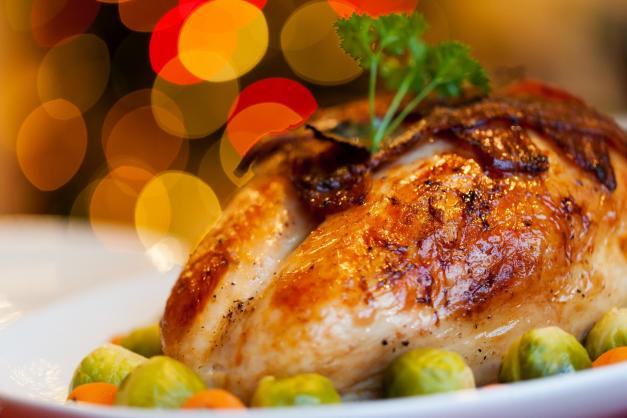
In our "oh-so-busy" world, holiday entertaining is often a communal affair, with friends and relatives contributing to the feast.
But bringing a dish to share can be an unintentional invitation to unwanted guests – bacteria that can cause foodborne illnesses. To be sure these party crashers don't make it through the door, here are some tips for traveling safely with prepared foods.
Prepare with Care
Safe food travel starts with safe food preparation. That means clean hands, utensils and food preparation surfaces. Use hot water and soap to effectively get rid of bacteria. Thoroughly wash your hands before and after food preparation. Never, ever go directly from working with raw meat, poultry or seafood to working with other foods without washing your equipment – cutting boards, dishes and utensils – and your hands with soap and hot water. If you don't do this, you run the risk of transferring the bacteria that live in these uncooked foods to other items on your menu.
Cooked Foods
Divide cooked foods, including meats, gravy, dressing, stews and casseroles, into small containers and refrigerate or freeze immediately, as appropriate to the item. Using multiple small containers, rather than one large one, has many benefits. Cooked food will cool or freeze faster and more evenly, and can be thawed or thoroughly reheated in less time. Also, if you’re traveling by car and packing in a cooler, the smaller containers will be easier to fit.
Uncooked Foods
Even uncooked foods require some special attention. If you're bringing raw fruits or vegetables, remember that they don't receive the safety benefits that cooking provides. Before purchasing or packing these items, check for visual signs of spoilage. These include unusual odors or colors, or shriveled, moldy or bruised items.
If possible, rinse just before preparing and serving. Use running water. If standing water is used, the microorganisms that have been rinsed off one item can be transferred to another. If you need to bring them ready-to-eat, rinse, then blot dry with a paper towel and pack in containers or plastic bags. Make sure there is no excess liquid in the containers. Store them in the refrigerator until it's time to leave, and then pop them in the cooler.
Pack Safely
If flying, be sure to check TSA regulations to see what you can bring onboard. This will help determine what you can contribute to the feast.
If you will be traveling by car and bringing a cooler, pack the cooler as close to departure time as possible. If the cooler is only partially filled, pack the remaining space with more ice packs or plastic bags filled with ice cubes. If you are going on a long car trip, be sure to add ice, replacing what has melted, along the way.